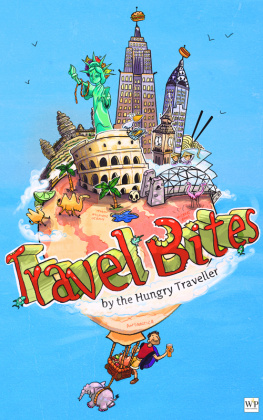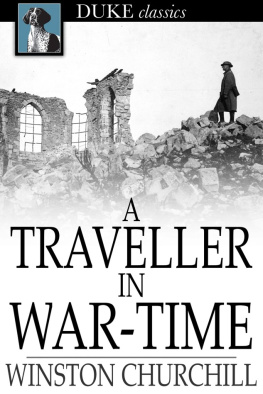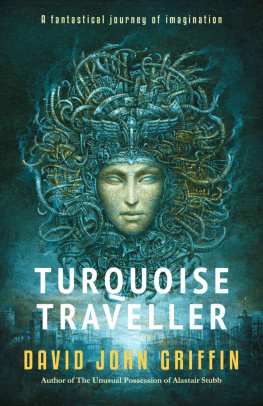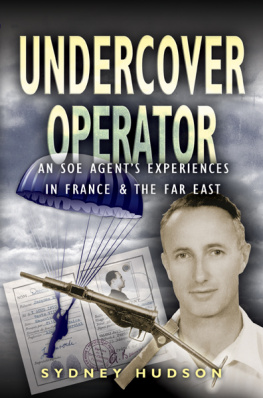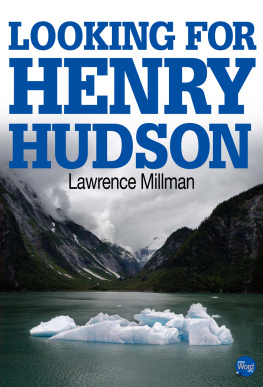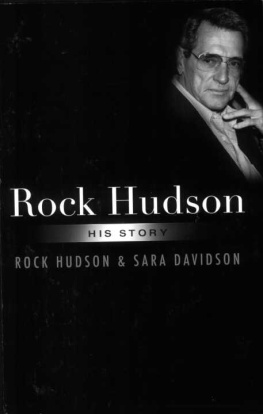W. H. Hudson - A Traveller in Little Things
Here you can read online W. H. Hudson - A Traveller in Little Things full text of the book (entire story) in english for free. Download pdf and epub, get meaning, cover and reviews about this ebook. year: 2011, publisher: Barnes & Noble, genre: Non-fiction. Description of the work, (preface) as well as reviews are available. Best literature library LitArk.com created for fans of good reading and offers a wide selection of genres:
Romance novel
Science fiction
Adventure
Detective
Science
History
Home and family
Prose
Art
Politics
Computer
Non-fiction
Religion
Business
Children
Humor
Choose a favorite category and find really read worthwhile books. Enjoy immersion in the world of imagination, feel the emotions of the characters or learn something new for yourself, make an fascinating discovery.
- Book:A Traveller in Little Things
- Author:
- Publisher:Barnes & Noble
- Genre:
- Year:2011
- Rating:4 / 5
- Favourites:Add to favourites
- Your mark:
- 80
- 1
- 2
- 3
- 4
- 5
A Traveller in Little Things: summary, description and annotation
We offer to read an annotation, description, summary or preface (depends on what the author of the book "A Traveller in Little Things" wrote himself). If you haven't found the necessary information about the book — write in the comments, we will try to find it.
A traveller in little things . . . which takes you into the villages and hamlets, where you meet and converse with small farmers . . . with other persons who live on the land. This is a strangers astute description of W. H. Hudson during one of his rambles around Englandhis experiences charmingly captured in this travel narrative.
A Traveller in Little Things — read online for free the complete book (whole text) full work
Below is the text of the book, divided by pages. System saving the place of the last page read, allows you to conveniently read the book "A Traveller in Little Things" online for free, without having to search again every time where you left off. Put a bookmark, and you can go to the page where you finished reading at any time.
Font size:
Interval:
Bookmark:
W. H. HUDSON

This 2011 edition published by Barnes & Noble, Inc.
All rights reserved. No part of this publication may be reproduced, stored in a retrieval system, or transmitted, in any form or by any means, electronic, mechanical, photocopying, recording, or otherwise, without prior written permission from the publisher.
Barnes & Noble, Inc.
122 Fifth Avenue
New York, NY 10011
ISBN: 978-1-4114-3999-3
I
HOW I FOUND MY TITLE
IT is surely a rare experience for an unclassified man, past middle age, to hear himself accurately and aptly described for the first time in his life by a perfect stranger! This thing happened to me at Bristol, some time ago, in the way I am about to relate. I slept at a Commercial Hotel, and early next morning was joined in the big empty coffee-room, smelling of stale tobacco, by an intensely respectable-looking old gentleman, whose hair was of silvery whiteness, and who wore gold-rimmed spectacles and a heavy gold watch-chain with many seals attached thereto; whose linen was of the finest, and whose outer garments, including the trousers, were of the newest and blackest broadcloth. A glossier and at the same time a more venerable-looking "commercial" I had never seen in the west country, nor anywhere in the three kingdoms. He could not have improved his appearance if he had been on his way to attend the funeral of a millionaire. But with all his superior look he was quite affable, and talked fluently and instructively on a variety of themes, including trade, politics, and religion. Perceiving that he had taken me for what I was notone of the army in which he served, but of inferior rankI listened respectfully as became me. Finally he led the talk to the subject of agriculture, and the condition and prospects of farming in England. Here I perceived that he was on wholly unfamiliar ground, and in return for the valuable information he had given me on other and more important subjects, I proceeded to enlighten him. When I had finished stating my facts and views, he said: "I perceive that you know a great deal more about the matter than I do, and I will now tell you why you know more. You are a traveller in little thingsin something very smallwhich takes you into the villages and hamlets, where you meet and converse with small farmers, innkeepers, labourers and their wives, with other persons who live on the land. In this way you get to hear a good deal about rent and cost of living, and what the people are able and not able to do. Now I am out of all that; I never go to a village nor see a farmer. I am a traveller in something very large. In the south and west I visit towns like Salisbury, Exeter, Bristol, Southampton; then I go to the big towns in the Midlands and the North, and to Glasgow and Edinburgh; and afterwards to Belfast and Dublin. It would simply be a waste of time for me to visit a town of less than fifty or sixty thousand inhabitants."
He then gave me some particulars concerning the large thing he travelled in; and when I had expressed all the interest and admiration the subject called for, he condescendingly invited me to tell him something about my own small line.
Now this was wrong of him; it was a distinct contravention of an unwritten law among "Commercials" that no person must be interrogated concerning the nature of his business. The big and the little man, once inside the hostel, which is their club as well, are on an equality. I did not remind my questioner of thisI merely smiled and said nothing, and he of course understood and respected my reticence. With a pleasant nod and a condescending let-us-say-no-more-about-it wave of the hand he passed on to other matters.
Notwithstanding that I was amused at his mistake, the label he had supplied me with was something to be grateful for, and I am now finding a use for it. And I think that if he, my labeller, should see this sketch by chance and recognise himself in it, he will say with his pleasant smile and wave of the hand, "Oh, that's his line! Yes, yes, I described him rightly enough, thinking it haberdashery or floral texts for cottage bedrooms, or something of that kind; I didn't imagine he was a traveller in anything quite so small as this."
II
THE OLD MAN'S DELUSION
WE know that our senses are subject to decay, that from our middle years they are decaying all the time; but happily it is as if we didn't know and didn't believe. The process is too gradual to trouble us; we can only say, at fifty or sixty or seventy, that it is doubtless the case that we can't see as far or as well, or hear or smell as sharply, as we did a decade ago, but that we don't notice the difference. Lately I met an extreme case, that of a man well past seventy who did not appear to know that his senses had faded at all. He noticed that the world was not what it had been to him, as it had appeared, for example, when he was a ploughboy, the time of his life he remembered most vividly, but it was not the fault of his senses; the mirror was all right, it was the world that had grown dim.
I found him at the gate where I was accustomed to go of an evening to watch the sun set over the sea of yellow corn and the high green elms beyond, which divide the cornfields from the Maidenhead Thicket. An old agricultural labourer, he had a grey face and grey hair and throat-beard; he stooped a good deal, and struck me as being very feeble and long past work. But he told me that he still did some work in the fields. The older farmers who had employed him for many years past gave him a little to do; he also had his old-age pension, and his children helped to keep him in comfort. He was quite well off, he said, compared to many. There was a subdued and sombre cheerfulness in him, and when I questioned him about his early life, he talked very freely in his slow old peasant way. He was born in a village in the Vale of Aylesbury, and began work as a ploughboy on a very big farm. He had a good master and was well fed, the food being bacon, vegetables, and homemade bread, also suet pudding three times a week. But what he remembered best was a rice pudding which came by chance in his way during his first year on the farm. There was some of the pudding left in a dish after the family had dined, and the farmer said to his wife, "Give it to the boy"; so he had it, and never tasted anything so nice in all his life. How he enjoyed that pudding! He remembered it now as if it had been yesterday, though it was sixty-five years ago.
He then went on to talk of the changes that had been going on in the world since that happy time; but the greatest change of all was in the appearance of things. He had had a hard life, and the hardest time was when he was a ploughboy and had to work so hard that he was tired to death at the end of every day; yet at four o'clock in the morning he was ready and glad to get up and go out to work all day again because everything looked so bright, and it made him happy just to look up at the sky and listen to the birds. In those days there were larks. The number of larks was wonderful; the sound of their singing filled the whole air. He didn't want any greater happiness than to hear them singing over his head. A few days ago, not more than half a mile from where we were standing, he was crossing a field when a lark got up singing near him and went singing over his head. He stopped to listen and said to himself, "Well now, that do remind me of old times!"
"For you know," he went on, "it is a rare thing to hear a lark now. What's become of all the birds I used to see I don't know. I remember there was a very pretty bird at that time called the yellow-hammera bird all a shining yellow, the prettiest of all the birds." He never saw nor heard that bird now, he assured me.
Font size:
Interval:
Bookmark:
Similar books «A Traveller in Little Things»
Look at similar books to A Traveller in Little Things. We have selected literature similar in name and meaning in the hope of providing readers with more options to find new, interesting, not yet read works.
Discussion, reviews of the book A Traveller in Little Things and just readers' own opinions. Leave your comments, write what you think about the work, its meaning or the main characters. Specify what exactly you liked and what you didn't like, and why you think so.







